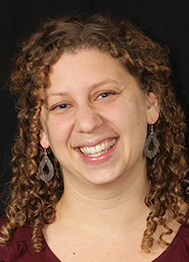In our parashah, we learn about the mysterious affliction tzara’at. Further on in the Book of Numbers, Miriam the Prophetess is stricken with tzara’at as a punishment for speaking against her brother Moses. Miriam and her other brother Aaron – we’ll have to save the question of why Aaron goes unpunished for another d’var Torah on sexism – had been complaining about Moses, exclaiming: “He married a Cushite woman!”
There are some different perspectives among scholars about the content of this critique, but since Cushites were likely from Ethiopia, it is distinctly possible that their protest had roots in anti-blackness: Miriam and Aaron were upset that Moses had married a woman with black skin. In a ironic twist, Miriam’s punishment is that her skin is turned white by the tzara’at. The story of Miriam’s tzara’at invites us to reflect on the issue of interpersonal racism, a painful thing to do.
But how do we do heshbon hanefesh, soul-accounting, on our personal prejudice without encountering crushing feelings of guilt and shame? We certainly won’t use God’s treatment of Miriam as a model: she is banished from the community. She is publicly shamed. But Moses responds tersely but with compassion – he prays “El Na Refa Na La – please God, heal her.” The only way we can do this work is to hold each other close, remind each other that we are deeply good and while it is not our fault it is our responsibility. We weren’t born this way. We didn’t ask to receive messages about the inferiority of certain peoples and the superiority of others. We didn’t ask for the world to be set up like this. But we are responsible for pursuing remedies, both small and large.
Of course, the danger of focusing in on the racism within us and between people might mean missing the forest for the trees. In this week’s parashah, we learn that tzara’at not only afflicts human beings but also the buildings we live in, the very structures around us. Institutional and structural racism is a web of policies that lead to inequality that infects our educational, political, and economic systems. As the Black Lives Matter movement has forced this country to see, our so-called criminal justice and policing systems are plagued with institutional racism.
I joined a T’ruah delegation to Ferguson in October of 2014. Clergy gathered outside the police station, standing eye to eye with police officers, offering to hear their confession, and asking for their repentance. I prayed that each of those individual police officers in Ferguson would make teshuvah, would return to their core goodness and righteousness, serving and protecting every child of God they come across. But can I ask the same of the police as an institution when among their first major roles was the enforcement of slavery, eventually culminating in the Fugitive Slave Act of 1850 – an evil law that required that runaway slaves be forcefully returned to their masters wherever found? Given these origins, what would it mean for me to ask the police to repent, to turn around, to return? When the police have their roots in protecting the institution of slavery and, by extension, white supremacy, how could I ask that institution to return, to make teshuvah?
It can be scary to confront the tzara’at in us and in our society. For those of us with white-skin privilege, it can feel like we have to sacrifice a lot. But this is not the only truth. There is a midrash (VaYikra Rabbah 17:6) that tells us that when the Israelites would tear down a tzara’at-stricken house that could not be salvaged, they would find treasure buried within the walls. When we do the work to challenge the systems that keep inequality in place, we become:
Liberated.
More whole.
We regain our full humanity.
We grow.
We heal.
Blessed are you God, healer of the sick.
Rabbi Alana Alpert is the Founding Director of Detroit Jews for Justice and serves Congregation T’chiyah.


